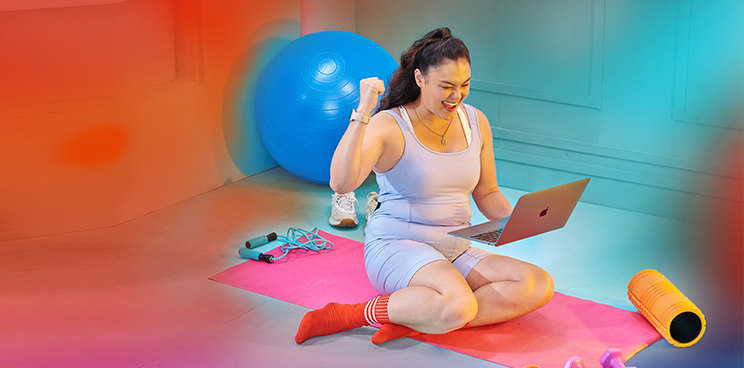Already a NEXT client?
Call your Virtual Financial Coach at the exclusive hotline (+632) 8540-9866.
We all know that once we start working and become young professionals, our clock starts ticking for when we can reap the benefits of free rent and unlimited grocery supplies courtesy of our loving parents. Eventually, it comes to a point that it just feels a little… awkward. Nobody wants to feel like a freeloader, right?
Maybe your job’s in the city and the commute or long drive is taking a toll. Or maybe your next big milestone is simply becoming more independent and how else can you start other than by living it?
Whatever your reason might be, moving out of your parents’ house is all fun and games — until the big responsibilities hit, specifically managing your own finances. To help guide you through the transition, we spoke with Arby Cuevas, BPI App Marketing Officer, who moved out early in her career and here are some important things she wanted to highlight before calling in the movers:
For Arby, this is the first and most important step: crunch your numbers so you can define your budget and living costs. This sets your expectations for how much you can comfortably spend on essentials such as rent, food, and utilities, and most importantly, if moving out is even an option.
Next, start listing those variable expenses: rent, electricity, water, internet, transportation, and groceries. If you have no idea how much some of these costs, don’t worry, Google is your friend! Even better, ask your parents or friends to get ballpark figures.
Then comes the more personal (and fun) stuff you probably know the costs of – like streaming subscriptions, weekend plans, or gym memberships. Seeing the picture of your spending and working budget helps you stay realistic and prepared.
A lot of first-time renters focus only on the monthly rate, but don’t get blindsided; there’s more to moving out than just rent. Most places will require a security deposit, advance rent, and possibly association dues or maintenance fees or both.
Arby notes that landlords may ask for what she calls a 2+2, meaning two months’ deposit and two months’ advance, especially if you’re paying in cash without post-dated checks.
“If your rent is P20,000, you could be asked to pay P80,000 upfront. That catches a lot of people off guard,” she says. Ask for a detailed breakdown and clarify refund policies for the deposit especially for any damages in the rented space.
Beyond hidden fees, the move itself has expenses and more often than not, it’s one time, big time. You’ll need funds for furniture, home essentials, and possibly movers or delivery fees. That’s why saving in advance helps you cover these big spendings instead of relying on your monthly income.
Pro tip: Check out secondhand shops for pre-loved furniture – great finds, even better savings!
Moving out means preparing for unexpected challenges — something Arby learned the hard way. “When you get sick, it’s tough. No one’s there to check up on you or buy you medicine,” she shares. That’s why she stocks up on essentials, ready-to-eat meals, and meds on top of building a financial cushion worth 3 to 6 months of her living expenses.
“If you’re aggressive, three months is okay. But if you’re being cautious, especially in today’s economy, aim for six.”
Moving out might be a big milestone but it is a short-term goal. Are you planning to rent for the next few years or are you already eyeing property ownership in the near future?
Your answer can influence the kind of space you choose now. If you’re not sure yet, check out this article to know what’s best for you.
For Arby, it really depends on one’s values and goals. She points out that buying property means committing to stay in that area for a long time and not everyone wants that.
Scary news: You’re on your own now. Good news: You’re on your OWN now (Taylor Swift was onto something.)
That means it’s up to you to stay on top of your expenses. Use a spreadsheet, a budgeting app, or the Track & Plan feature in the BPI app to monitor your cash flow. Regularly check in and adjust as needed. Like Arby, she uses a budgeting app ever since she moved out. Her method? The 20-30-50 rule:
She also keeps multiple BPI accounts: one for payroll, savings, investments, and checking, each to make money management more intentional and organized for her.
For Arby, true independence isn’t just about living alone, but having that mindset that you can manage things on your own. Only then you can achieve true freedom once you start believing in yourself that you can handle life’s responsibilities.
If you are not sure where to start, NEXT by BPI Preferred offers financial coaching to help you budget smarter and prepare for major life moves, like this one.
Want more financial education tips? Visit The Program by NEXT to help you reach your next big financial milestone.

Get all the help for your banking needs.